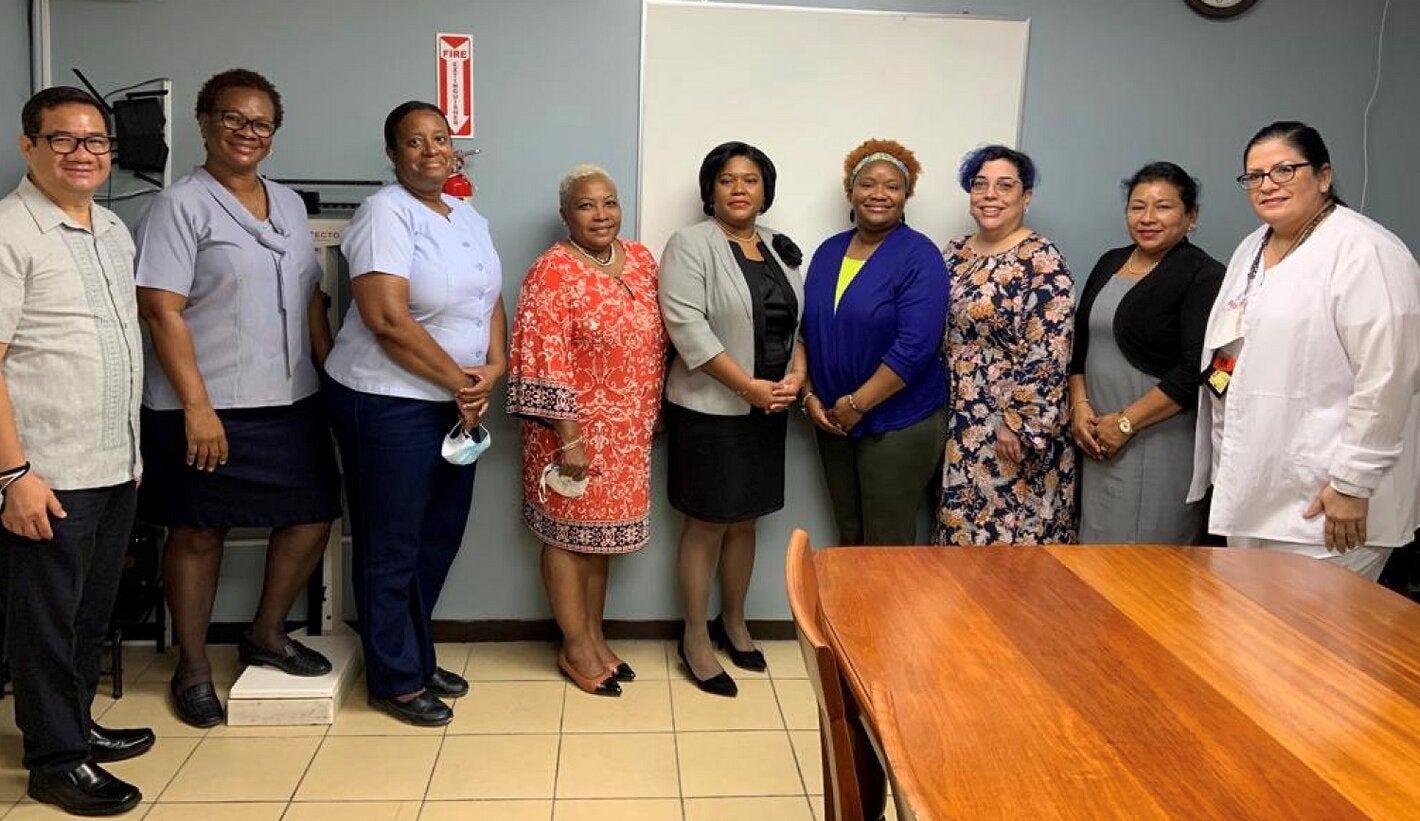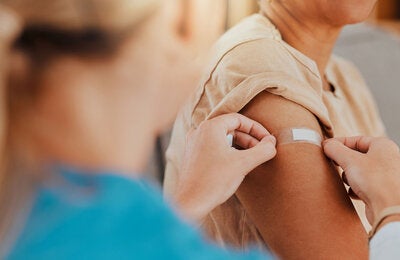
Belize City, Belize, December 12, 2022 (PAHO/WHO) – The Pan American Health Organization (PAHO) and its Collaborating Center at the University of North Carolina (UNC) School of Nursing recently collaborated with the Ministry of Health and Wellness and partners to strengthen nursing education in Belize.
PAHO’s Subregional Program identified Belize as one of the countries that can benefit from a pilot project being conducted in the Caribbean region. The pilot project, ‘Strengthening Nursing Education in the Caribbean to Improve Emergency Preparedness,’ aims to assess the alignment of nursing programs to the Curriculum for Registered Nursing Education Programme BSc Nursing for CARICOM countries. It will also strengthen clinical care learning among nurses through the improvement of simulation laboratories in nursing schools.
Low retention and high turnover rates in the Caribbean, continue to cause critical shortages of nurses and assistive health personnel. The COVID-19 pandemic then revealed the importance and priority of training healthcare workers in emergency preparedness, response, and immunization. However, a country must invest in nursing education that will ensure more equitable access to care, better preparation in emergencies, and improved health outcomes.
The UNC visiting team assessed the School of Nursing at the University of Belize. The team included an Assistant Professor, a Clinical Assistant Professor and Lecturer in Nursing, and a Nursing Programme Coordinator from UWI Cave Hill, along with PAHO/WHO representatives and persons from the Ministry of Health and Wellness, the Nurses and Midwives Council of Belize and the Nurses Association of Belize.
In assessing the nursing program, the team reviewed the academic curricula, inspected classrooms, simulation labs, the library, textbooks and materials and computer rooms including informatics programs, internet access, and teaching hospital/clinical areas. The team also had an open discussion about the programme with faculty and students at the Faculty of Nursing, Allied Health, and Social Work of the University of Belize.
"Students, lecturers, and clinical instructors welcomed the opportunity to share their challenges and the potential future threats to nursing education in Belize,” said Mrs. Isidora Paquiul-Espadas, Chair of the Nursing Department at the University of Belize. “The aim to provide quality and relevant nursing education can be realized with sufficient human resources, continuing professional development and the necessary physical infrastructures in place. A national unified approach is critical to addressing these challenges. We are optimistic that the report from this collaboration will ultimately lead to the creation of strategic changes and policy decisions regarding nurses and nursing education in Belize. This report will also provide valuable information for the upcoming program review of the Bachelor of Science in Nursing in 2023.”
Dr. Benjamin Puertas, PAHO Subregional Advisor in Human Resources for Health, considered that “the pilot in Belize provided essential elements that will be useful when applying the project in other countries, such as the importance of combining local and international expertise in the assessment”. Dr Puertas added that PAHO is procuring equipment to support the simulation lab in Belize.
The assessment report will also be a valuable resource in the University of Belize’s upcoming 2023 review of their Bachelor of Science in Nursing program.



